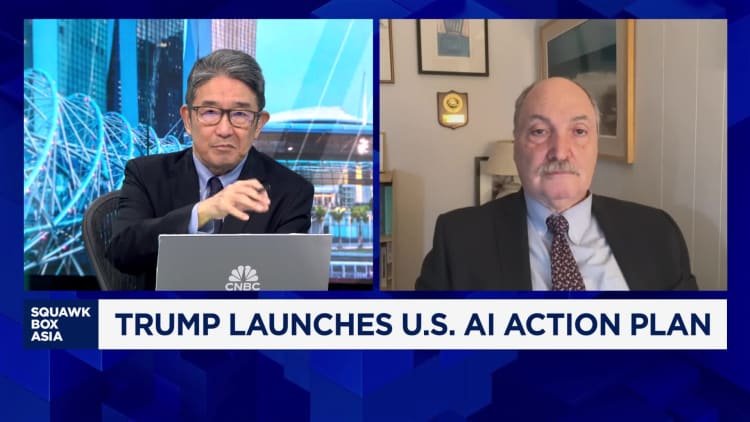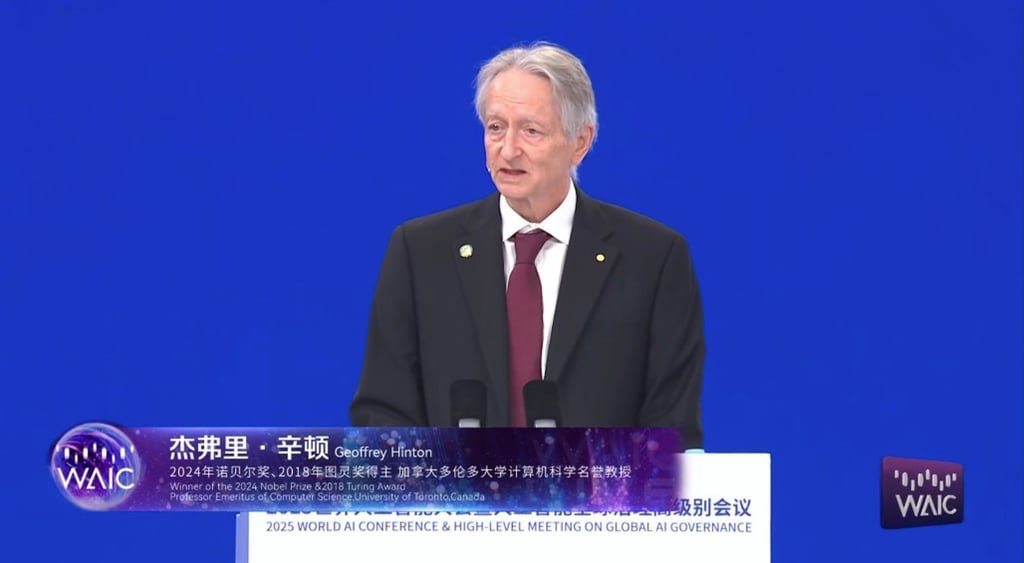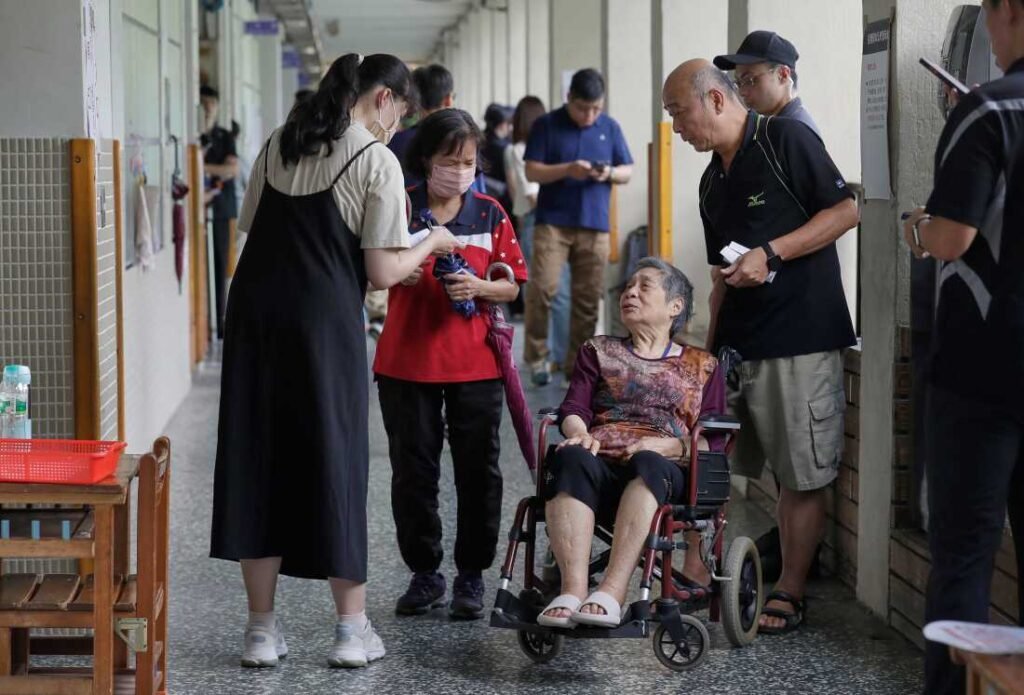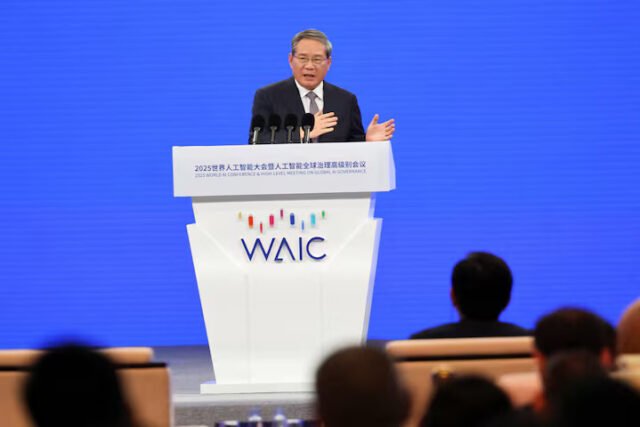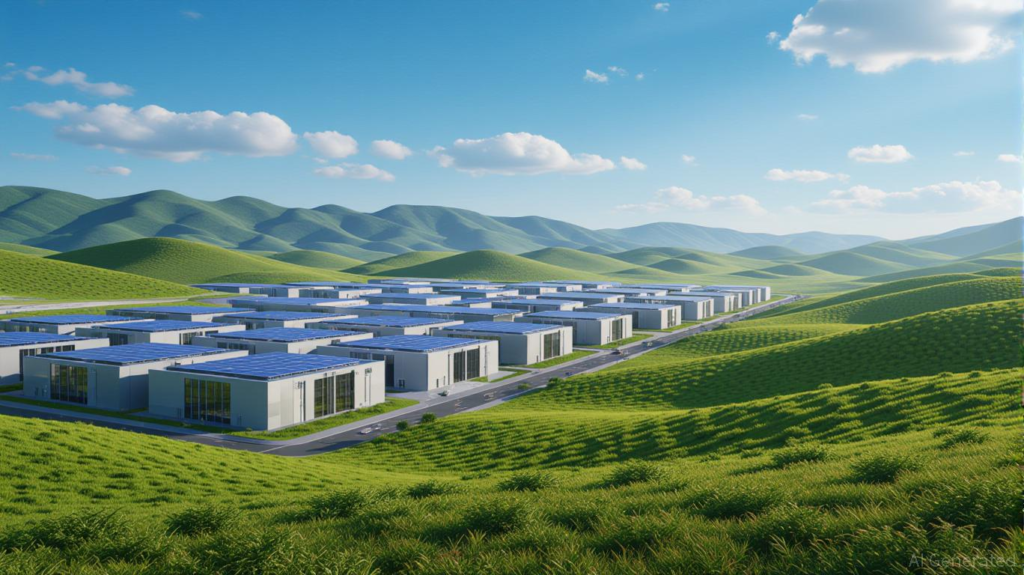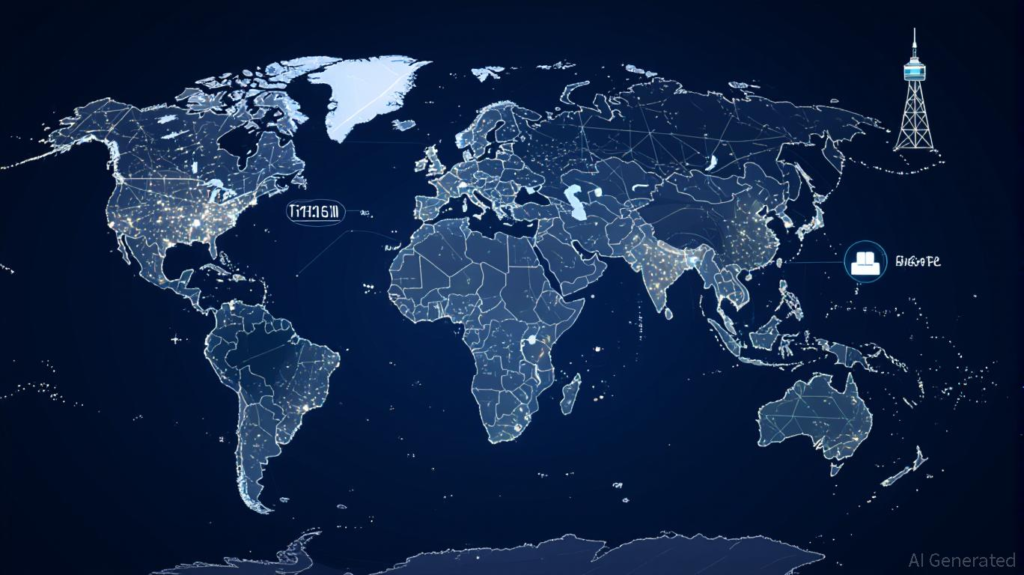AI (Artificial Intelligence) smartphone app ChatGPT surrounded by other AI Apps in Vaasa, on Jun. 6, 2023. (AFP Photo)
July 26, 2025 12:52 PM GMT+03:00
Chinese Premier Li Qiang urged the international community Saturday to establish urgent consensus on balancing artificial intelligence development with security risks, as the technology race between Beijing and Washington continues to escalate.
Speaking at the opening of the World AI Conference in Shanghai, Li emphasized the need for global governance frameworks and announced the creation of a Chinese-led international AI cooperation body.
His remarks came days after President Donald Trump outlined an aggressive deregulation strategy designed to maintain American leadership in the rapidly evolving AI sector.
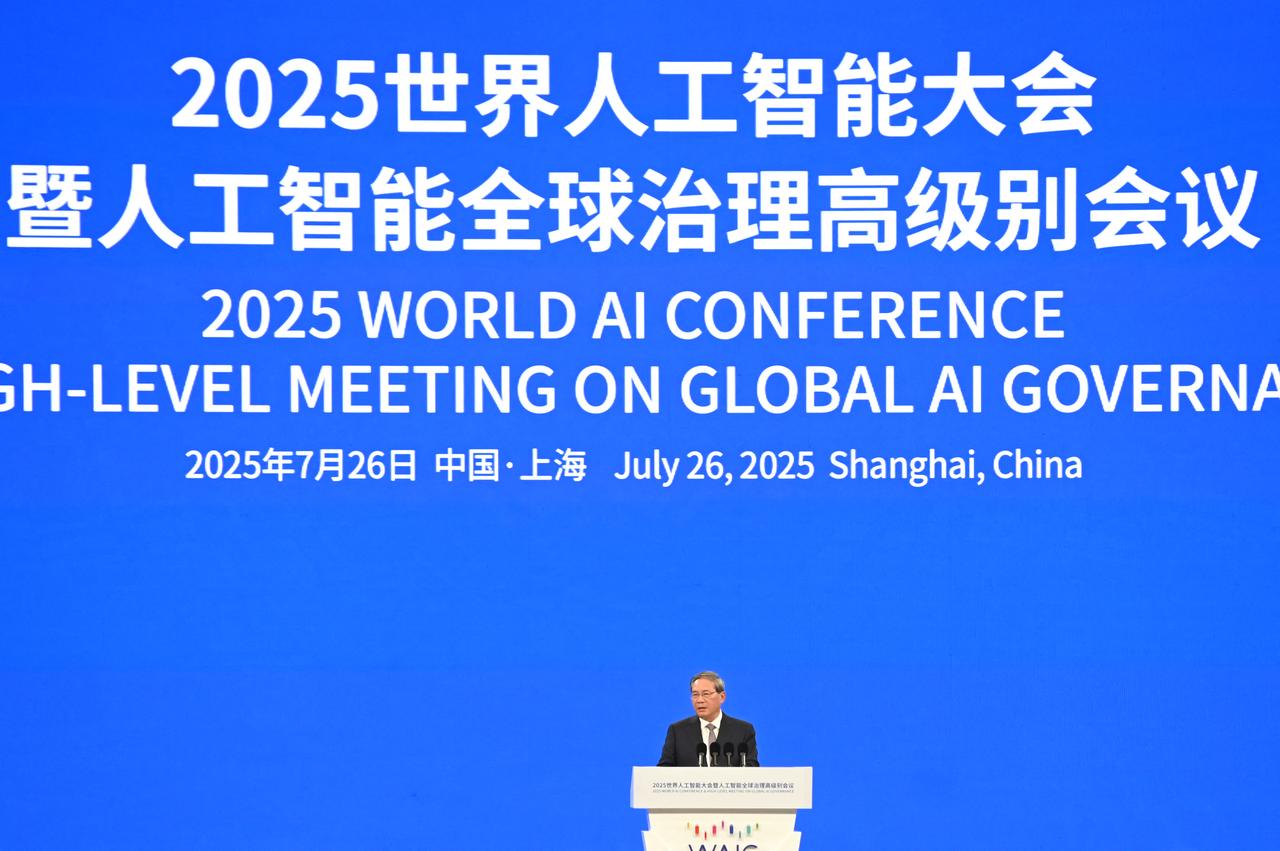
Chinese Premier Li Qiang speaks at the opening ceremony of the World Artificial Intelligence Conference in Shanghai on July 26, 2025. (AFP Photo)
Premier warns against technological monopolization
“The risks and challenges brought by artificial intelligence have drawn widespread attention,” Li said. “How to find a balance between development and security urgently requires further consensus from the entire society.”
The premier positioned China as an advocate for open-source AI development, pledging to share technological advances with other nations, particularly developing countries. He warned against technological monopolization, arguing that restrictive practices would limit AI benefits to “a few countries and a few enterprises.”
“Only by adhering to openness, sharing and fairness in access to intelligence can more countries and groups benefit from (AI),” Li stated.
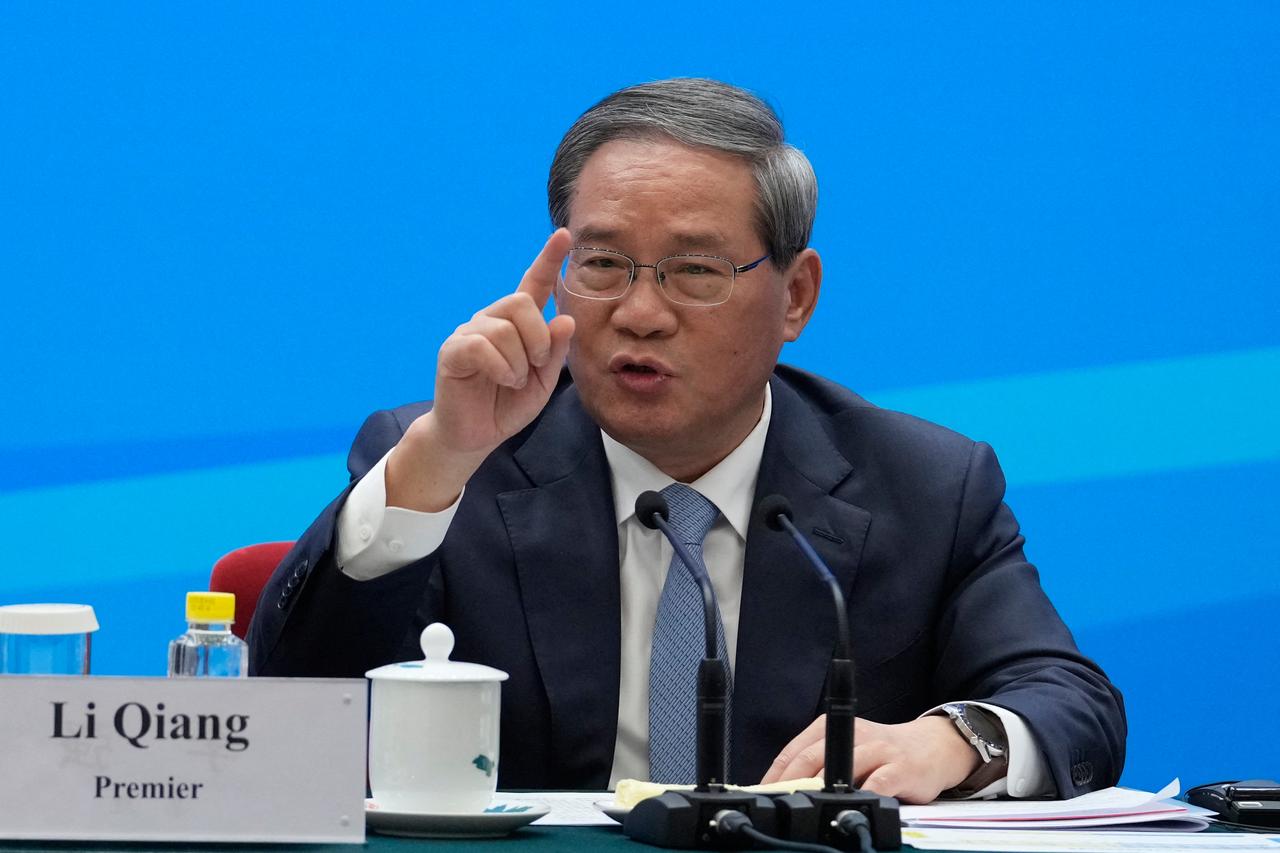
Chinese Premier Li Qiang speaks during the EU-China Business leaders symposium at the Great Hall of the People in Beijing on July 24, 2025. (AFP Photo)
Chip supply constraints highlight US-China tensions
The Chinese leader identified supply constraints in computing power and semiconductors as significant obstacles to AI advancement. His comments underscore ongoing tensions with Washington, which has expanded restrictions on advanced chip exports to China over concerns about military applications and technological competition.
China has prioritized AI development as central to its technological self-reliance strategy, with government initiatives supporting sector growth. The approach gained attention in January when Chinese startup DeepSeek released an AI model matching top American systems while using less sophisticated chips.
International experts stress need for AI governance
The conference highlighted growing international concern about AI governance challenges. Nobel Prize-winning physicist Geoffrey Hinton compared the current AI situation to keeping “a very cute tiger cub as a pet,” noting the need to ensure proper training, so it does “not to kill you when it grows up.”
U.N. Secretary-General Antonio Guterres, in a video message, described AI governance as “a defining test of international cooperation.” French President Emmanuel Macron’s AI envoy Anne Bouverot emphasized “an urgent need” for coordinated global action.
Global divisions emerge over regulatory approaches
International efforts to establish AI governance frameworks have revealed divisions between major powers. At February’s AI summit in Paris, 58 countries, including China, France and India, endorsed enhanced coordination on AI oversight. However, the United States and United Kingdom declined to sign the summit’s appeal for “open,” “inclusive” and “ethical” AI development, with Washington cautioning against “excessive regulation.”
The competing approaches reflect broader strategic competition between the U.S. and China in emerging technologies, with both nations viewing AI leadership as crucial to future economic and security advantages.
July 26, 2025 12:52 PM GMT+03:00




